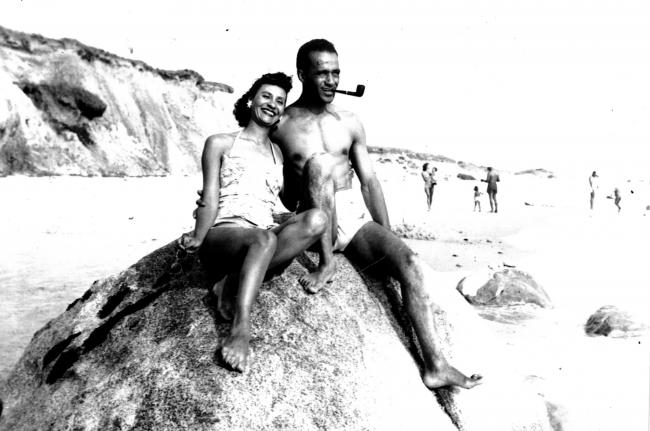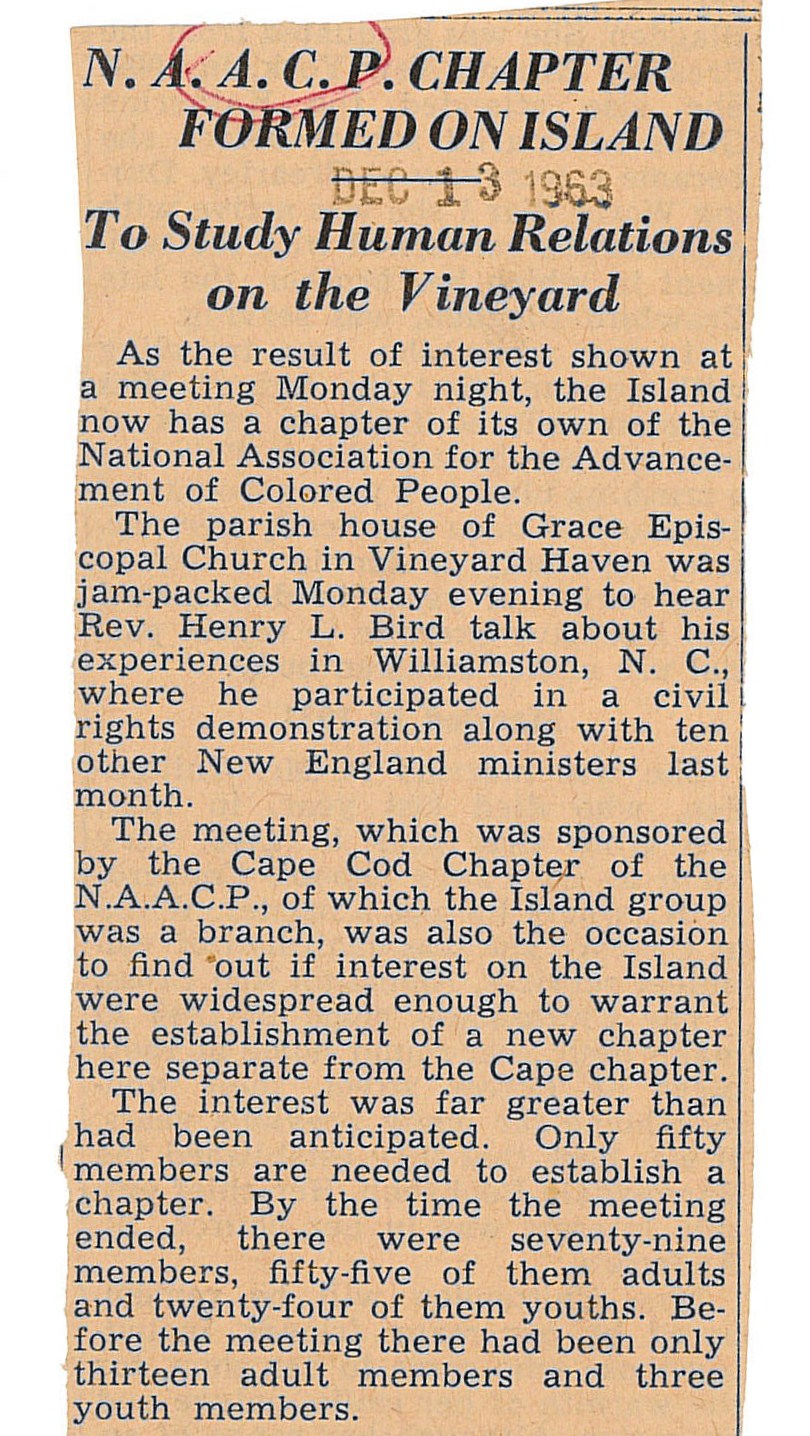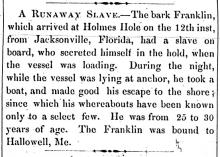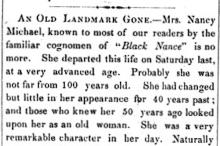As the result of interest shown at a meeting Monday night, the Island now has a chapter of its own of the National Association for the Advancement of Colored People.
The parish house of Grace Episcopal Church in Vineyard Haven was jam-packed Monday evening to hear Rev. Henry L. Bird talk about his experiences in Williamston, N. C., where he participated in a civil rights demonstration along with ten other New England ministers last month.
The meeting, which was sponsored by the Cape Cod Chapter of the N.A.A.C.P., of which the Island group was a branch, was also the occasion to find out if interest on the Island were widespread enough to warrant the establishment of a new chapter here separate from the Cape chapter.
The interest was far greater than I had been anticipated. Only fifty members are needed to establish a Chapter. By the time the meeting ended, there were seventy-nine members, fifty-five of them adults and twenty-four of them youths. Before the meeting there had been only thirteen adult members and three youth members.
Expects Larger Membership
Mrs. Stanley Murphy, the treasurer of the group, said the next day she thought that by today the membership would be even greater.
The flowering of the civil rights movement on the Island is unquestionably the result of the public reaction of Mr. Bird’s decision to join the North Carolina demonstration and the trip subsequently made by Dr. Robert W. Nevin to the same locality.
Although there had been N.A.A.C.P. rallies at the Tabernacle in the Camp Grounds the last two summers and although Mr. Bird and other Vineyarders had participated in the March on Washington, it was not until Mr. Bird and Dr. Nevin so dramatically displayed their total commitment to the cause of human rights that a sense of immediacy led many Vineyarders to believe they should themselves play a more active role in the movement.
Mr. Bird, who was arrested and jailed with others in Williamston for flouting a municipal ordinance requiring a permit to have a parade, spoke Monday night about the progress of the civil rights movement in the small North Carolina town in the context of the four basic steps in no-violent persuasion first advocated by Dr. Martin Luther King in his famous letter written from the Birmingham City Jail.
The four steps are to collect the facts, to negotiate, to undergo self-purification and to take direct action.
“In Williamston the facts were clear,” Mr. Bird said, explaining, with the aid of maps and diagrams, that it was a community of total racial segregation. The negotiation step had fizzled out in a “bi-racial committee” that had accomplished nothing more than the removal of the white and colored signs over the segregated drinking fountains in the courthouse.
At the time Mr. Bird and the other New England ministers, all members of a north branch of the Southern Christian Leadership Conference, of which Dr. King is the head, entered the picture, the movement in Williamston had already entered into the third and fourth steps in the nonviolent campaign.
The act of self-purification is a process in which the individual rids himself of his own hates and prejudices. Subjected to tests of harassment and hate-induced violence, he trains himself to respond to the acts of enemies with love, prayer and nonviolence. In one of the early demonstrations before the New England ministers went to Williamston, the demonstrators met perhaps the supreme test of their non-violent training when the nozzles of an insecticide spraying machine were turned on them full force, and they did not move.
“The power structure in Williamston became tired of the demonstrations and put in an ordinance requiring a permit to parade,” Mr. Bird said, adding that the ordinance ironically contained a notation that it was not meant to interfere with the constitutional right of assembly.
Demonstration in Defiance
It was after the Negro demonstrators had been denied a permit, that the call went out to the New England ministers who constituted the Southern Christian Leadership Conference in this area. The demonstration was held in defiance of the ordinance, and the ministers along with a large group of Negroes were jailed. The demonstration was held on the advice of the national lawyer for the N.A.A.C.P., with the idea of making a test case of a town’s use of the parade permit ordinance in that particular way.
Basically, however, the movement in Williainston was striving for the following goals: desegregation of all public accommodations and of all city and county buildings, the use of courtesy titles (a prevailing Southern custom is to address Negroes only by first names), increase the power of the bi-racial committee, fair employment practices, opening the voter registration books sixty days each year, end of police brutality, integration of the tax rolls, end the parade permit ordinance and drop all actions instituted since the demonstrations began.
Mr. Bird said that other forms of direct action had been taken in addition to the demonstrations. One is called Operation Dialogue, wherein an effort is made to engage white people in conversations on the civil rights question on a person to person basis. This practice is an attempt to get through a barrier that has resulted in a complete lack of communications between the two forces. The other is an economic boycott of the stores in town. Both appear to be having some effect, Mr. Bird said.
One of the immediate results of Mr. Bird’s journey, and Dr. Nevin’s, was the desire expressed by many Vineyarders to emulate the concern for human rights shown by these two men. A small part of this desire manifested itself in the Letters to the Editors column of the Gazette for several weeks. And the formation of the N.A.A.C.P. chapter as a vehicle by which that concern could be carried to definite action was the outcome.
Matters to Be Considered
Mr. Bird suggested that among the matters the Vineyard chapter of the organization could concern itself with were housing, employment and public accommodations as they relate to racial discrimination.
Somebody present asked if there were really anything to worry about in connection with public accommodations (restaurants, hotels and such) on the Island, and Mr. Bird answered that indeed there was, in spite of the fact that there is a state law forbidding discrimination. He said that there were subtle ways to make people of the “wrong” race unwelcome at hotels.
Mr. Bird also urged those present to write, telegraph or telephone Representative Hastings Keith, urging him to work for discharging the petition which would enable the civil rights bill now in Congress to come to a vote before the full House of Representatives.
He suggested that the chapter also be instrumental in planning the welcome of a group of Williamston Negroes coming to New England the latter part of the month, and who will visit the Island Dec. 27 and 28. There will be about seventy-five people coming together, he said, and a great many of them will be junior and senior high school students.
Another immediate chapter concern, he said, could be the question of summer employment on a fair basis.
He urged that the group familiarize itself with the principles of non-violent protest and how to act within the scope of four steps. He also suggested reading the outstanding civil rights books and tracts, most of which are available in the larger Island libraries.











Comments